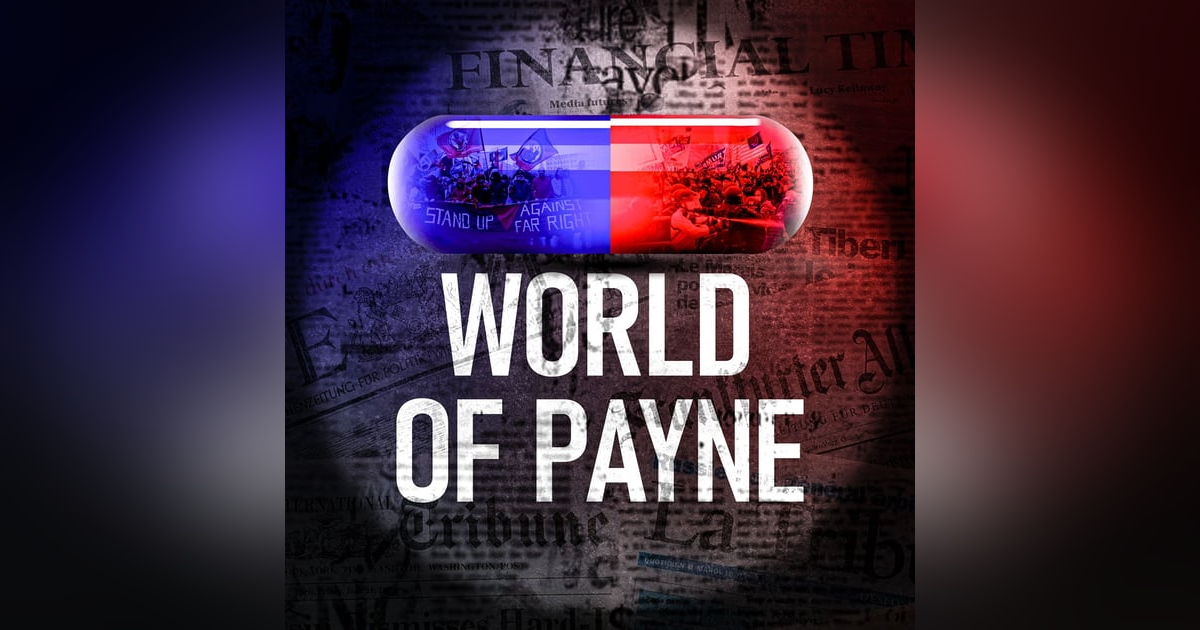US Naval Actions Near Venezuela: International Law and Geopolitical Strategy
In today's complex geopolitical landscape, actions taken by major powers often spark intense debate and scrutiny. One such instance is the recent US naval action near Venezuela. This blog post delves into the multifaceted aspects of these actions, examining them through the lenses of international law, geopolitical strategy, and differing ideological perspectives. We aim to provide a balanced analysis, exploring both the conservative and liberal viewpoints on the matter. This discussion expands on the brief overview we provided in our latest podcast episode, "Two Sides Today Ep: 1 Government Shutdown, Drug Boat Destruction, National Guardians," specifically the segment concerning U.S. naval strikes near Venezuela. We encourage you to listen to the episode for a broader understanding of the week's headlines and then dive deep into this post for the nuances of the Venezuelan situation.
The News: Understanding U.S. Naval Activity
Recent reports have detailed increased U.S. naval presence and activity in the vicinity of Venezuela's territorial waters. The specifics of these operations are often shrouded in ambiguity, fueling speculation and concern. Official statements from the U.S. government typically cite reasons such as counter-narcotics operations, regional security, and freedom of navigation exercises. However, critics argue that these justifications may mask ulterior motives, such as exerting pressure on the Venezuelan government or demonstrating U.S. power in the region.
It's crucial to distinguish between different types of naval activity. Freedom of navigation operations, for example, are intended to challenge excessive maritime claims by other nations, ensuring that international waters remain open to all. Counter-narcotics operations, on the other hand, involve interdicting drug trafficking routes, often in collaboration with regional partners. The specific nature and scale of the U.S. naval activity near Venezuela remain subjects of public discussion and scrutiny.
International Law Considerations: Legality of U.S. Naval Actions
The legality of U.S. naval actions near Venezuela is a complex issue governed by international law, primarily the United Nations Convention on the Law of the Sea (UNCLOS) and the principles of state sovereignty and non-intervention. Under UNCLOS, states have the right to conduct naval operations in international waters, including the high seas and exclusive economic zones (EEZs). However, these rights are not unlimited. Naval activities must respect the rights of other states, including their sovereignty and security.
The principle of non-intervention prohibits states from interfering in the internal affairs of other states. This principle is enshrined in the UN Charter and is a cornerstone of international law. However, there are exceptions to this rule. The UN Security Council, for example, can authorize military intervention in certain circumstances, such as to maintain international peace and security. Additionally, a state may invoke the right to self-defense if it is subjected to an armed attack.
The legality of U.S. naval actions near Venezuela hinges on whether these actions constitute an intervention in Venezuela's internal affairs. The U.S. government argues that its naval operations are not intended to interfere in Venezuelan politics but are instead aimed at combating drug trafficking and promoting regional stability. Critics, however, contend that the naval presence itself constitutes a form of coercion, intended to destabilize the Venezuelan government and influence its policies. Furthermore, any potential actions that violate Venezuelan sovereignty, such as unauthorized entry into territorial waters, or the use of force, would be a violation of international law.
Conservative Perspective: National Security and Regional Stability
From a conservative perspective, U.S. naval actions near Venezuela are viewed as essential for protecting national security interests and maintaining regional stability. Conservatives often argue that Venezuela poses a threat to the United States and its allies due to the country's political instability, economic crisis, and alleged involvement in drug trafficking and other illicit activities. They point to the potential for Venezuela to become a haven for terrorist groups or a source of regional instability that could spill over into neighboring countries.
Conservatives tend to support a strong U.S. military presence in the region as a deterrent to potential adversaries and a means of projecting American power. They argue that U.S. naval operations near Venezuela send a clear message to the Venezuelan government and other actors that the United States is committed to defending its interests and maintaining stability in the Western Hemisphere. They may also advocate for a more assertive approach towards Venezuela, including sanctions, diplomatic pressure, and even the potential for military intervention if deemed necessary.
Additionally, conservatives often emphasize the importance of upholding international law and combating drug trafficking. They may argue that U.S. naval actions near Venezuela are consistent with international law because they are aimed at interdicting drug shipments and preventing transnational crime. They also emphasize the need to support democratic forces in Venezuela and promote a transition to a more stable and democratic government.
Liberal Perspective: Concerns Over Sovereignty and Intervention
From a liberal perspective, U.S. naval actions near Venezuela raise serious concerns about sovereignty, intervention, and the potential for unintended consequences. Liberals often argue that the United States has a history of meddling in the affairs of Latin American countries, often with disastrous results. They point to past interventions in countries like Chile, Nicaragua, and Panama as examples of U.S. foreign policy gone wrong.
Liberals tend to be skeptical of claims that U.S. naval actions are solely aimed at combating drug trafficking or promoting regional stability. They argue that these justifications may mask a desire to exert political influence over Venezuela and undermine its government. They also express concern that the U.S. naval presence could escalate tensions in the region and lead to unintended military confrontations.
Furthermore, liberals often emphasize the importance of respecting international law and upholding the principle of non-intervention. They argue that U.S. naval actions near Venezuela may violate international law if they are perceived as an attempt to interfere in Venezuela's internal affairs. They also advocate for a more diplomatic approach towards Venezuela, including dialogue, negotiation, and multilateral cooperation.
Liberals are more likely to call for a focus on addressing the root causes of Venezuela's problems, such as poverty, corruption, and political repression. They may support humanitarian aid to Venezuela and efforts to promote democratic reforms through peaceful means. They are less likely to support military intervention or other coercive measures that could destabilize the region.
Potential Consequences: Geopolitical Ramifications
The U.S. naval actions near Venezuela have significant potential consequences for regional geopolitics. One potential consequence is increased tensions between the United States and Venezuela. The Venezuelan government has repeatedly condemned U.S. naval activity as a violation of its sovereignty and a threat to its national security. This has led to a deterioration in bilateral relations and increased the risk of miscalculation or accidental conflict.
Another potential consequence is a shift in regional alliances. Some countries in Latin America may view U.S. naval actions near Venezuela as an overreach of American power and a threat to their own sovereignty. This could lead them to distance themselves from the United States and seek closer ties with other powers, such as China or Russia. A deepening of ties between Venezuela and these countries is also possible. Russia has historically had a strong political alignment with Venezuela.
The U.S. naval actions could also have implications for the fight against drug trafficking. While the U.S. government claims that its naval operations are aimed at interdicting drug shipments, critics argue that they could disrupt existing counter-narcotics efforts and lead to an increase in drug trafficking. This is because the Venezuelan government may be less willing to cooperate with the United States on counter-narcotics efforts if it perceives the U.S. naval presence as a hostile act.
Furthermore, the U.S. naval actions could have unintended consequences for the Venezuelan people. Increased tensions and instability in the region could exacerbate the country's economic crisis and lead to further human suffering. It could also trigger a new wave of migration from Venezuela to neighboring countries, straining resources and creating new challenges for the region.
Debate: Purpose and Justification of the Naval Action
The purpose and justification of U.S. naval actions near Venezuela are subjects of intense debate. Proponents of the actions argue that they are necessary to protect U.S. national security interests, maintain regional stability, combat drug trafficking, and promote democracy in Venezuela. They point to the potential for Venezuela to become a haven for terrorist groups or a source of regional instability that could spill over into neighboring countries. They also emphasize the need to uphold international law and combat transnational crime.
Critics of the actions argue that they are an unnecessary and provocative intervention in Venezuela's internal affairs. They contend that the United States has a history of meddling in the affairs of Latin American countries, often with disastrous results. They also express concern that the U.S. naval presence could escalate tensions in the region and lead to unintended military confrontations. They argue that a more diplomatic approach towards Venezuela is needed, including dialogue, negotiation, and multilateral cooperation.
The debate over the purpose and justification of U.S. naval actions near Venezuela also involves differing interpretations of international law. Proponents of the actions argue that they are consistent with international law because they are aimed at interdicting drug shipments and preventing transnational crime. Critics, however, contend that the naval presence itself constitutes a form of coercion, intended to destabilize the Venezuelan government and influence its policies, violating international laws on intervention. The question of whether these actions constitute an intervention in Venezuela's internal affairs remains a central point of contention.
Ultimately, the debate over U.S. naval actions near Venezuela reflects a fundamental disagreement over the role of the United States in the world and the appropriate means of addressing complex geopolitical challenges. It also highlights the importance of considering the potential consequences of foreign policy decisions and the need to balance competing values and interests.
Conclusion: Balancing Geopolitics and International Law
The U.S. naval actions near Venezuela present a complex case study in the intersection of geopolitics and international law. As we've explored in this post, there are valid arguments from both conservative and liberal perspectives regarding the justification, legality, and potential consequences of these actions. Navigating this complex landscape requires a nuanced understanding of international law, regional dynamics, and the potential ramifications of both action and inaction. This discussion builds upon the topics covered in our podcast episode, "Two Sides Today Ep: 1 Government Shutdown, Drug Boat Destruction, National Guardians," providing a more in-depth analysis of the Venezuelan situation. In the episode, we also broke down other major headlines from conservative and liberal perspectives. Ultimately, the challenge lies in finding a balance between protecting national security interests and upholding international law, while also considering the potential impact on the Venezuelan people and the broader region. As this situation continues to unfold, it is imperative to maintain a critical and informed perspective, considering all sides of the issue to foster a more comprehensive understanding of the complexities at play.



